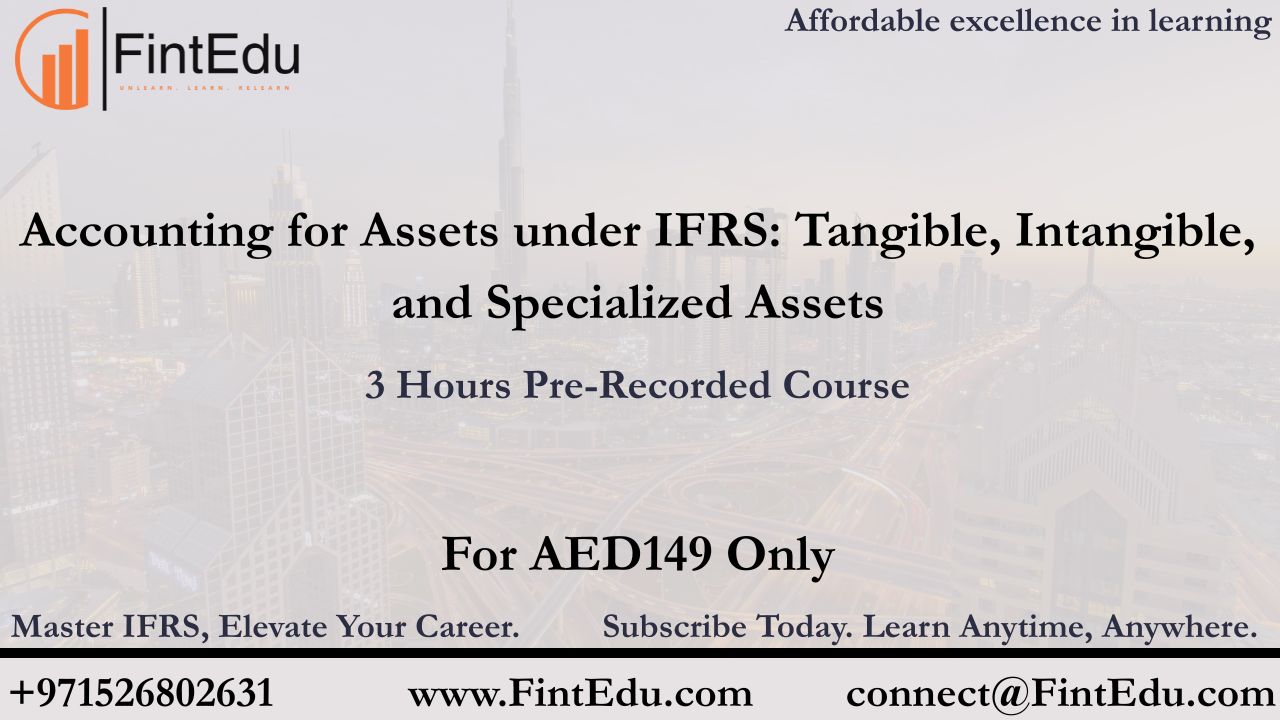
Accounting for Assets under IFRS: Tangible, Intangible, and Specialized Assets
Course Overview:
This comprehensive course is designed to equip finance and accounting professionals with a deep understanding of asset accounting under International Financial Reporting Standards (IFRS). Participants will gain practical knowledge on how to recognize, measure, and disclose different types of assets, including inventories, property, plant and equipment, intangible assets, investment properties, agricultural assets, and non-current assets held for sale. The course also covers crucial topics such as asset impairment, borrowing costs, and compliance with IFRS disclosure requirements.
Through detailed examples, case studies, and practical exercises, participants will learn to apply IFRS standards accurately, ensuring transparent and reliable
financial reporting. This course is ideal for accountants, auditors, finance managers, and professionals involved in financial statement preparation or analysis.
Complete All Modules of Financial Reporting to Get Certificate.
Key Topics Covered:
-
IAS 2 – Inventories: Recognition, measurement, and disclosure.
-
IAS 16 – Property, Plant, and Equipment: Acquisition, depreciation, revaluation, and disposal.
-
IAS 36 – Impairment of Assets: Identifying impairment indicators and measuring recoverable amounts.
-
IAS 38 – Intangible Assets: Recognition, amortization, and disclosure.
-
IAS 40 – Investment Property: Accounting and fair value measurement.
-
IAS 41 – Agriculture: Accounting for biological assets and agricultural produce.
-
IFRS 5 – Non-current Assets Held for Sale and Discontinued Operations: Measurement, presentation, and disclosure.
-
IAS 23 – Borrowing Costs: Capitalization and recognition of qualifying assets.
Learning Outcomes:
By the end of this course, participants will be able to understand and apply IFRS standards for various types of assets, including accounting for inventories, tangible and intangible assets, investment property, agricultural activities, and non-current assets held for sale. They will be able to identify and account for asset impairments, recognize and capitalize borrowing costs, and integrate these standards to prepare accurate, compliant, and transparent financial statements.
Who Should Attend:
-
Accountants and auditors
-
Finance managers and professionals
-
Professionals involved in financial statement preparation or analysis
-
Anyone seeking practical knowledge of IFRS asset accounting
Trainer: Hozefa Sehorewala